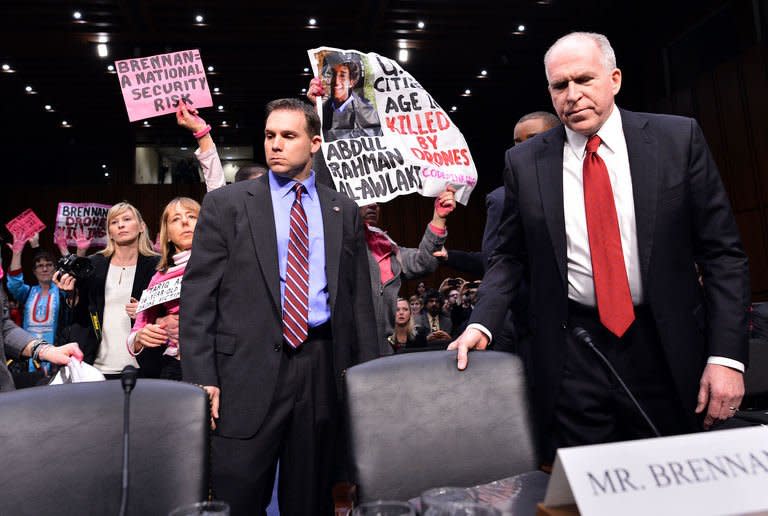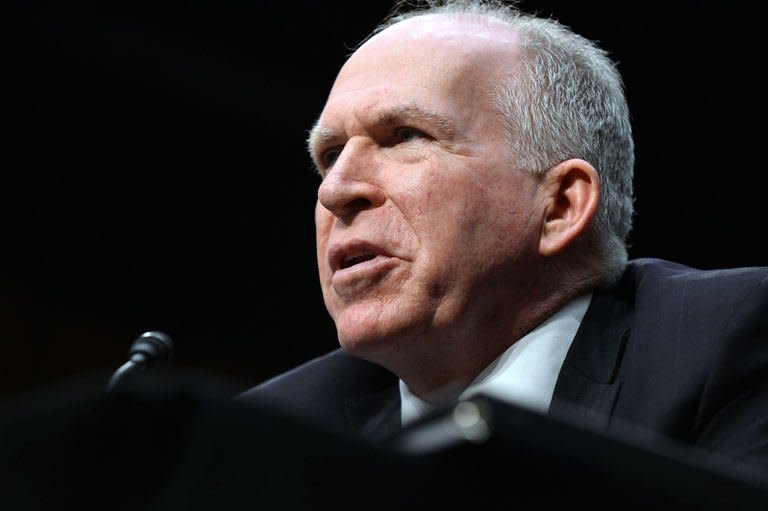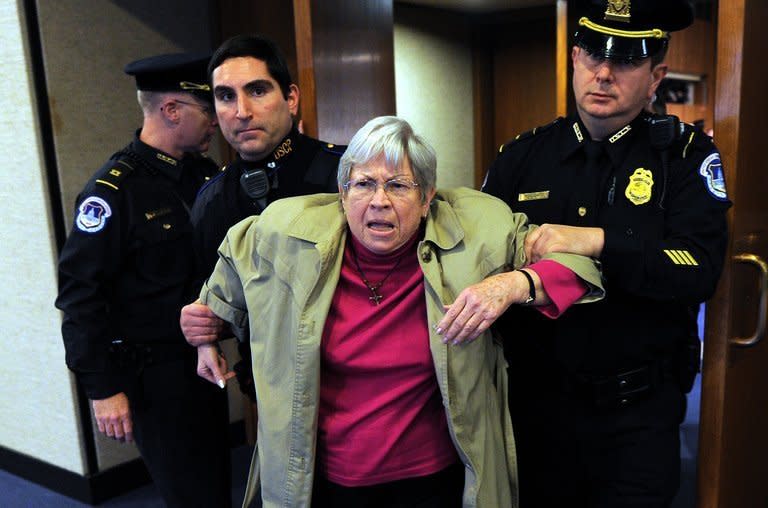Obama's choice to run CIA defends US drone war
President Barack Obama's choice to run the CIA defended drone strikes as a vital "last resort" against Al-Qaeda militants, despite criticism from senators about the veil of secrecy surrounding the raids. John Brennan, known as the architect of the drone war, faced repeated questions at his confirmation hearing over the "targeted killings," which have even involved Americans not charged with a crime. Democratic senators demanded the administration share more information about the strikes with Congress and the public. "Taking the fight to Al-Qaeda is something every member of this committee feels strongly about. It's the idea of giving any president unfettered power to kill an American without checks and balances that's so troubling," said Senator Ron Wyden, a Democrat from Oregon. The hearing before the Senate Intelligence Committee had hardly begun before protesters opposed to the drone attacks disrupted the proceedings, heckling Brennan before police cleared the hall to restore order. As police removed protesters and other guests from the hearing room, one woman shouted: "This is a war criminal. He should not be confirmed!" Afterward, Brennan referred to a "widespread debate" over counter-terrorism policies but said "disagreements should never prevent us from carrying out our national security and intelligence responsibilities." Pressed about the clandestine nature of the drone strikes, Brennan said the government needed to speak out more publicly about the operations to dispel misconceptions. "We only take such actions as a last resort to save lives," said Brennan, a 25-year veteran of the CIA who has served as Obama's top counter-terrorism adviser. "I think there really is a misunderstanding of what we do as a government and the care that we take and the agony that we go through to make sure that we do not have any collateral injuries or deaths. "We need to be able to go out and say that publicly and openly. I think it is critically important because people are reacting to a lot of falsehoods that are out there," he said. But he added secrecy also had to be upheld. The hearing shined a rare public spotlight on Obama's drone campaign and associated missile strikes, involving hundreds of bombing raids by unmanned, robotic aircraft in Pakistan, Yemen and elsewhere. Although Brennan is expected to be approved as the new head of the CIA, some senators seized on the hearing as a chance to question the legality of the drone raids. On the eve of the hearing, Obama bowed to pressure from lawmakers and handed over a classified memo that outlines the legal justification for killing Americans abroad if they are suspected of plotting with Al-Qaeda. Some Senate Democrats and Republicans have long demanded the document and threatened to delay confirming Brennan as CIA director over the issue. Senator Dianne Feinstein, chairwoman of the intelligence committee, welcomed the move but said she would propose legislation that would ensure a court review the drone strikes. Asked about the proposal, Brennan said the administration had "wrestled" with the idea but suggested it was impractical to apply to military-type operations. The Obama administration has sought to maintain strict secrecy over the raids but the threat of lawsuits, media reports and frustration from Congress has put pressure on officials to defend the drone campaign publicly. With the strikes now an open secret, Feinstein said it was unrealistic to keep insisting the program is "covert." Last year, the Justice Department had provided lawmakers with a summary of the secret legal opinion justifying targeting Americans, but senators had demanded the original document. The secret memo was used as the legal basis for a controversial September 2011 drone attack in Yemen that killed the extremist cleric Anwar al-Awlaki and another target, Samir Khan. The strike sparked concerns because Awlaki and Khan were US citizens who had never been charged with a crime. Known for his relentless work ethic, Brennan, a former CIA station chief in Saudi Arabia, was on a shortlist for the CIA director's job when Obama entered office in 2009. But he bowed out in the face of opposition over his role in the CIA's past use of harsh interrogation methods, including waterboarding, that have been widely condemned as torture. Brennan told senators he opposed waterboarding but declined to describe it as torture.





